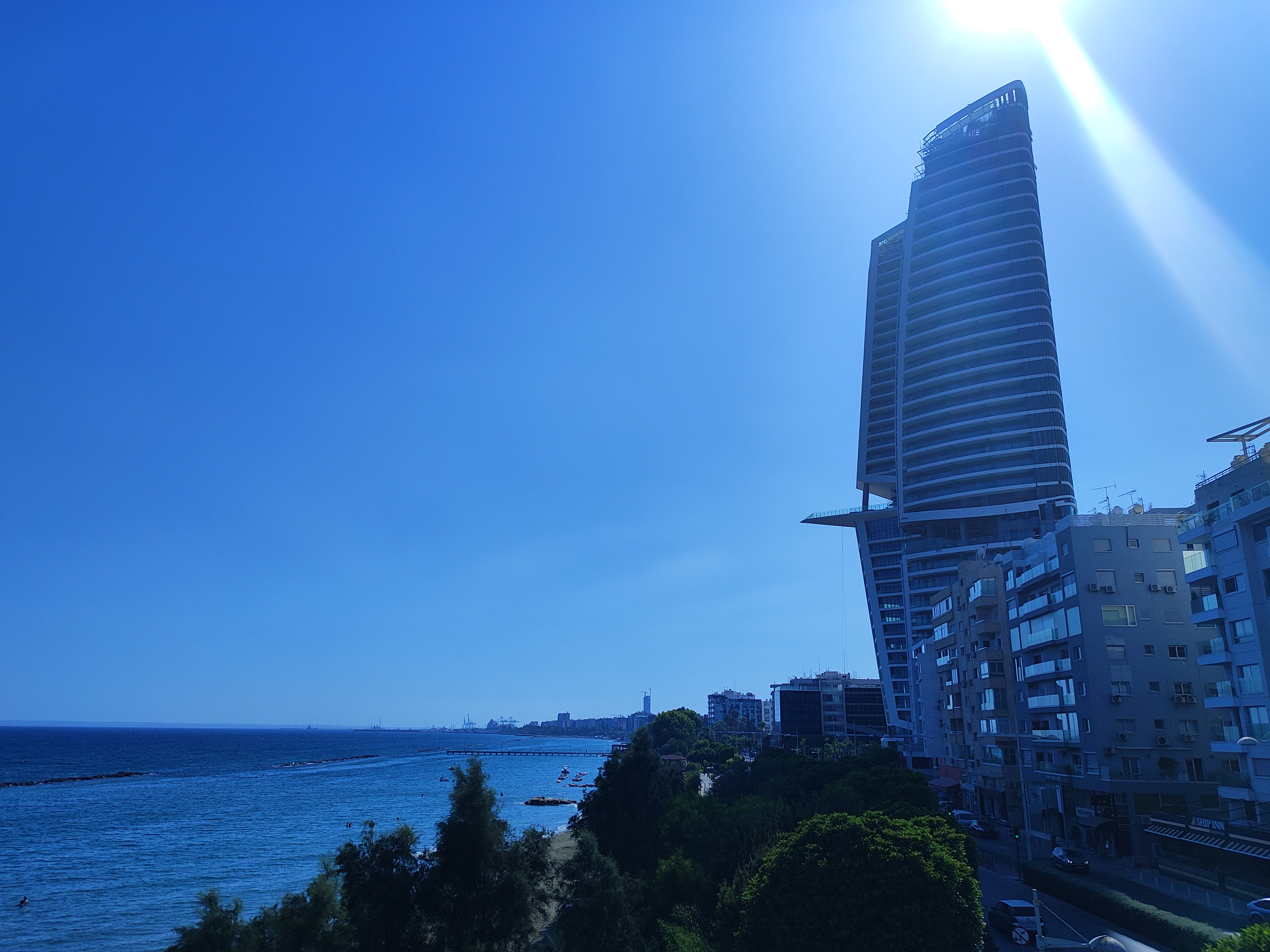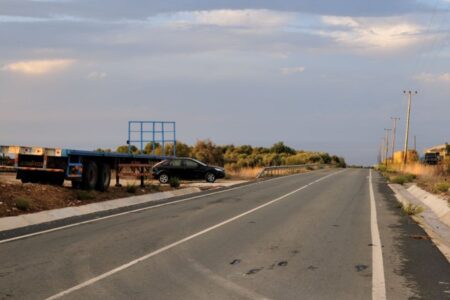Cyprus is a unique place that combines rich history, stunning natural landscapes, and favorable living conditions. The island is renowned for its mild climate, beautiful beaches, and high level of safety, attracting not only tourists but also those who wish to settle here for an extended period. Many foreigners choose Cyprus for relocation due to its convenient geographical location, tax benefits, and quality infrastructure. However, like any other place, living in Cyprus has its own peculiarities, and it is important to consider both the positive and negative aspects of this choice. In this article, we will thoroughly examine all the pros and cons of living on this Mediterranean island to help you make an informed decision about relocating.
Pros of Living in Cyprus
Climate
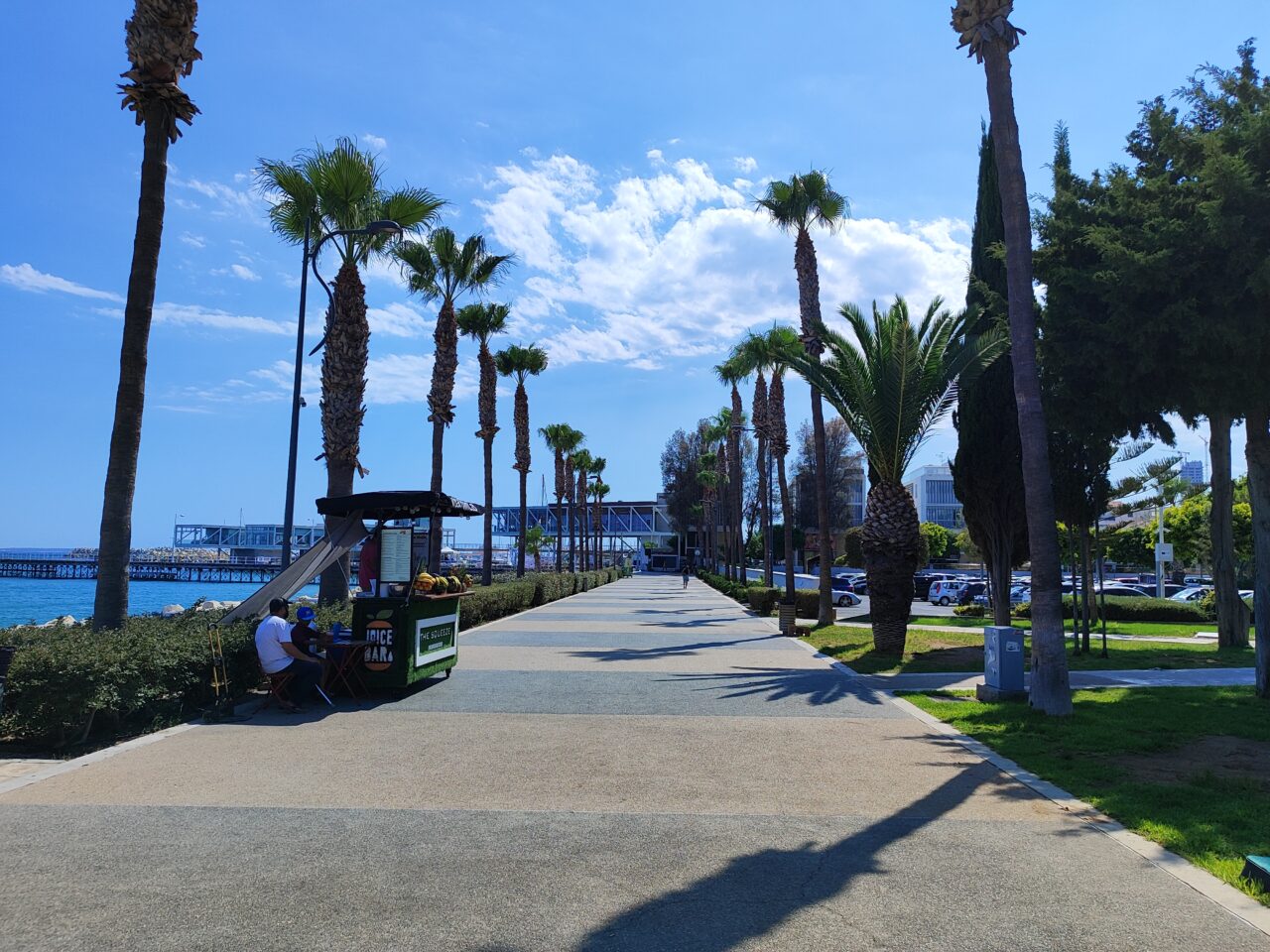
Cyprus is famous for its mild Mediterranean climate. The island enjoys over 300 sunny days a year, making it an ideal place for sun and warmth lovers. Summer here lasts from May to October.
Winter in Cyprus is short and mild, with temperatures rarely dropping below 10°C, which is particularly appealing to those who want to escape cold winters. This creates comfortable living conditions year-round, allowing residents to enjoy outdoor activities at any time of the year.
The climate has a positive impact on health, reducing the risk of seasonal illnesses and depression related to a lack of sunlight. Mild winters and warm seas have beneficial effects on the cardiovascular system and musculoskeletal system, which is especially important for the elderly and those suffering from chronic conditions.
Overall, Cyprus’s climate is one of the most significant advantages of living on the island, attracting both tourists and permanent residents who wish to enjoy sunny days year-round.
Ecology

One of the significant advantages of living in Cyprus is its favorable environmental conditions. The island is characterized by clean air, crystal-clear water, and numerous nature reserves, making it attractive to those who value nature and strive for a healthy lifestyle.
Cyprus is surrounded by the pristine waters of the Mediterranean Sea, and its beaches are regularly awarded for cleanliness and environmental standards. Many beaches are marked with the Blue Flag, indicating high water quality and safe swimming conditions. This is especially important for families with children and people who prefer nature-based recreation.
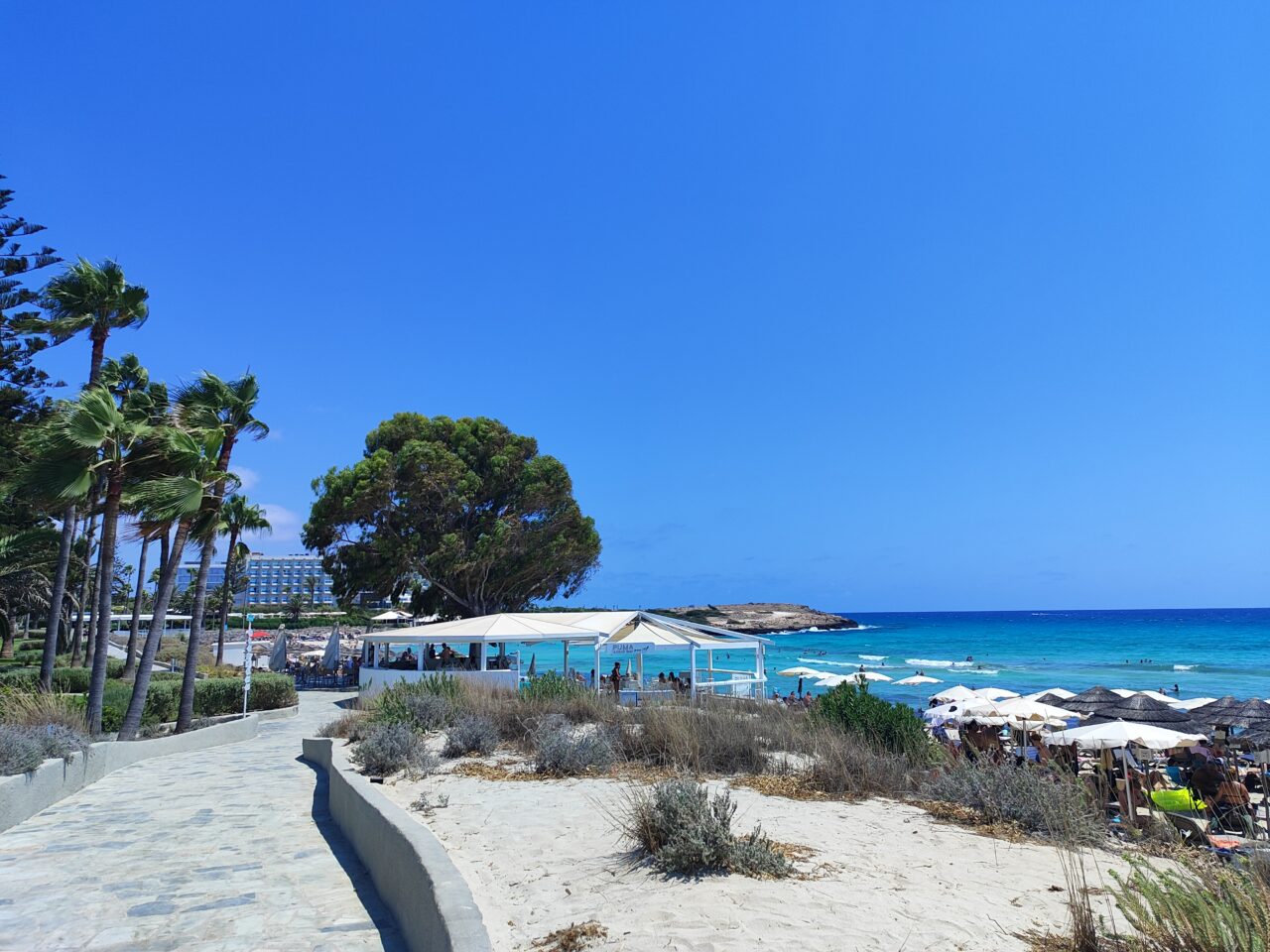
A significant portion of Cyprus’s territory is occupied by nature reserves and national parks, where one can enjoy the beauty of the local flora and fauna. The Troodos Mountains, covered with dense forests, and the Akamas Peninsula, with its wild nature and untouched beaches, offer excellent opportunities for hiking, cycling, and wildlife observation.
The air quality in Cyprus is also high, thanks to the absence of large industrial enterprises, making the island attractive to those who care about their health. Clean air and low pollution levels contribute to well-being and support a high quality of life on the island.
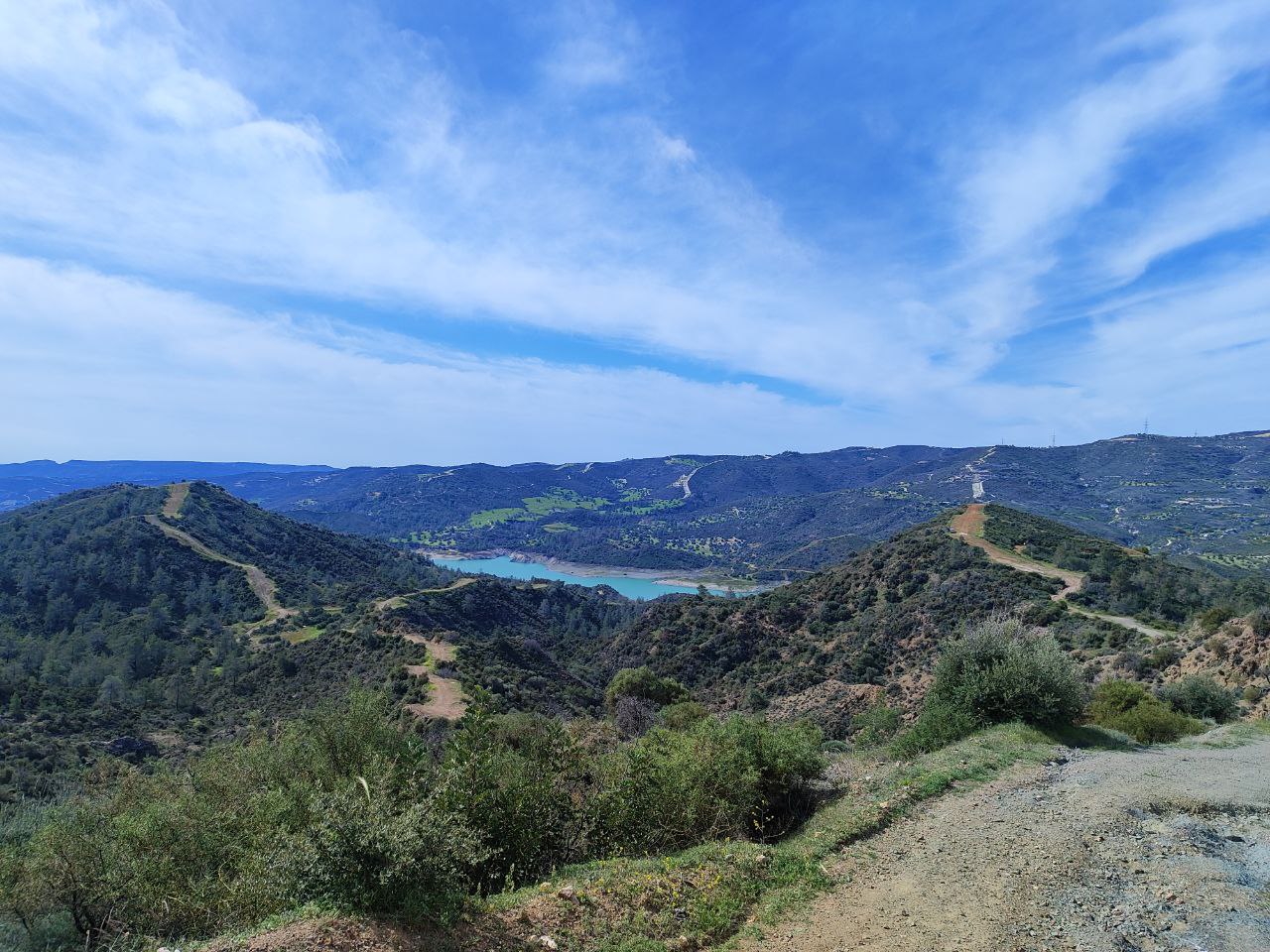
Despite these advantages, it is worth noting that some parts of the island, particularly in major cities, may face issues with waste and recycling. Nevertheless, the Cypriot government is making efforts to improve the waste management system and raise environmental awareness among the population.
In conclusion, the environmental situation in Cyprus is one of the key benefits for those considering this island as a place for permanent residence or long-term stay. Clean nature, sea, and air create favorable conditions for a healthy lifestyle and outdoor recreation.
Standard of Living and Safety
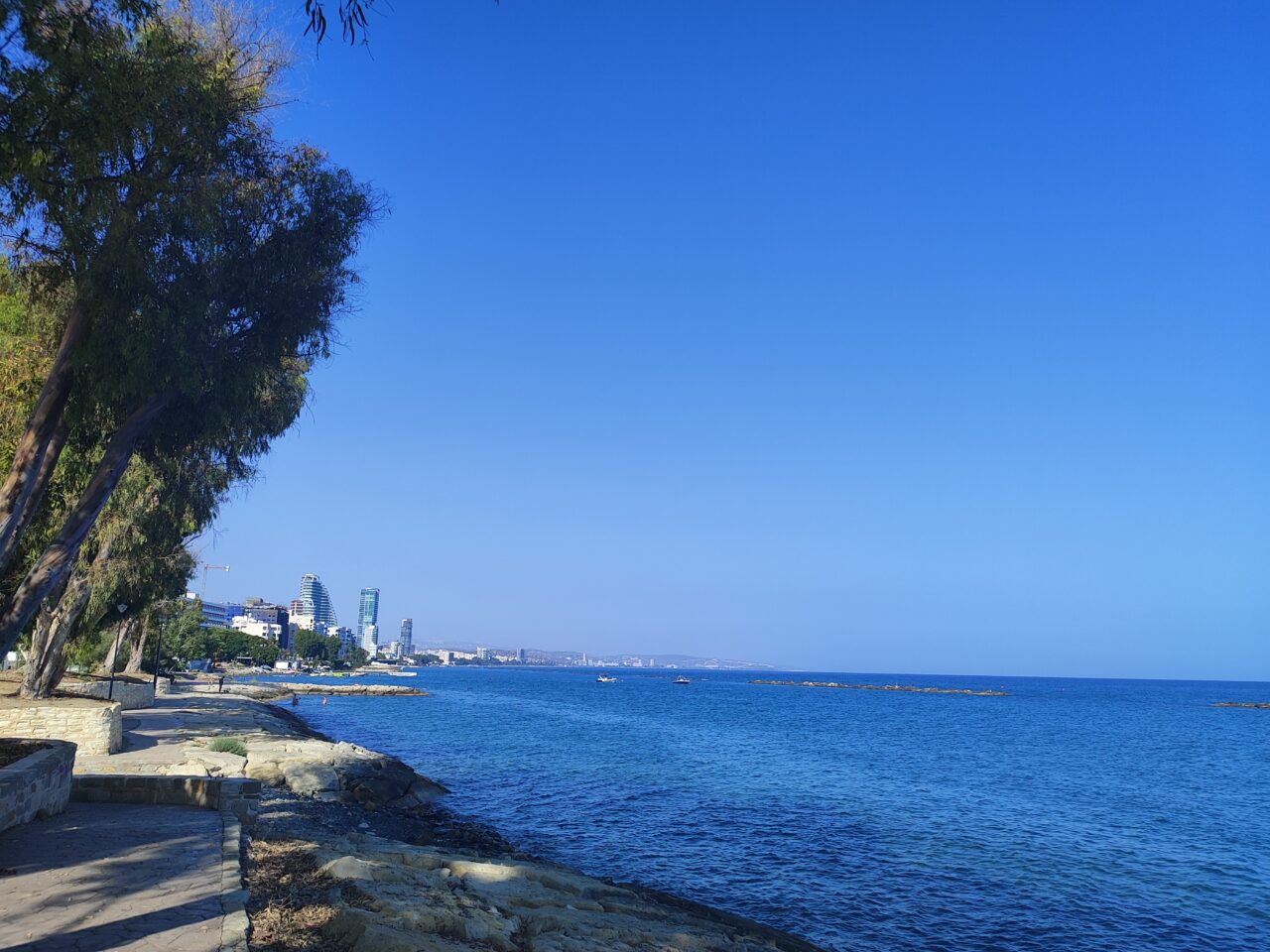
One of the significant advantages of living in Cyprus is the high standard of living and safety, making the island attractive to residents and expats from around the world.
Safety
Cyprus is renowned for its low crime rate, especially in comparison with other European countries. It is one of the safest places in Europe, which is particularly important for families with children and the elderly. Crimes such as theft, robbery, or violence are rare here. The level of petty crime is also low, allowing residents to feel comfortable and secure, even when walking the streets late at night. The police in Cyprus are effective, and citizens generally trust law enforcement.
Standard of Living
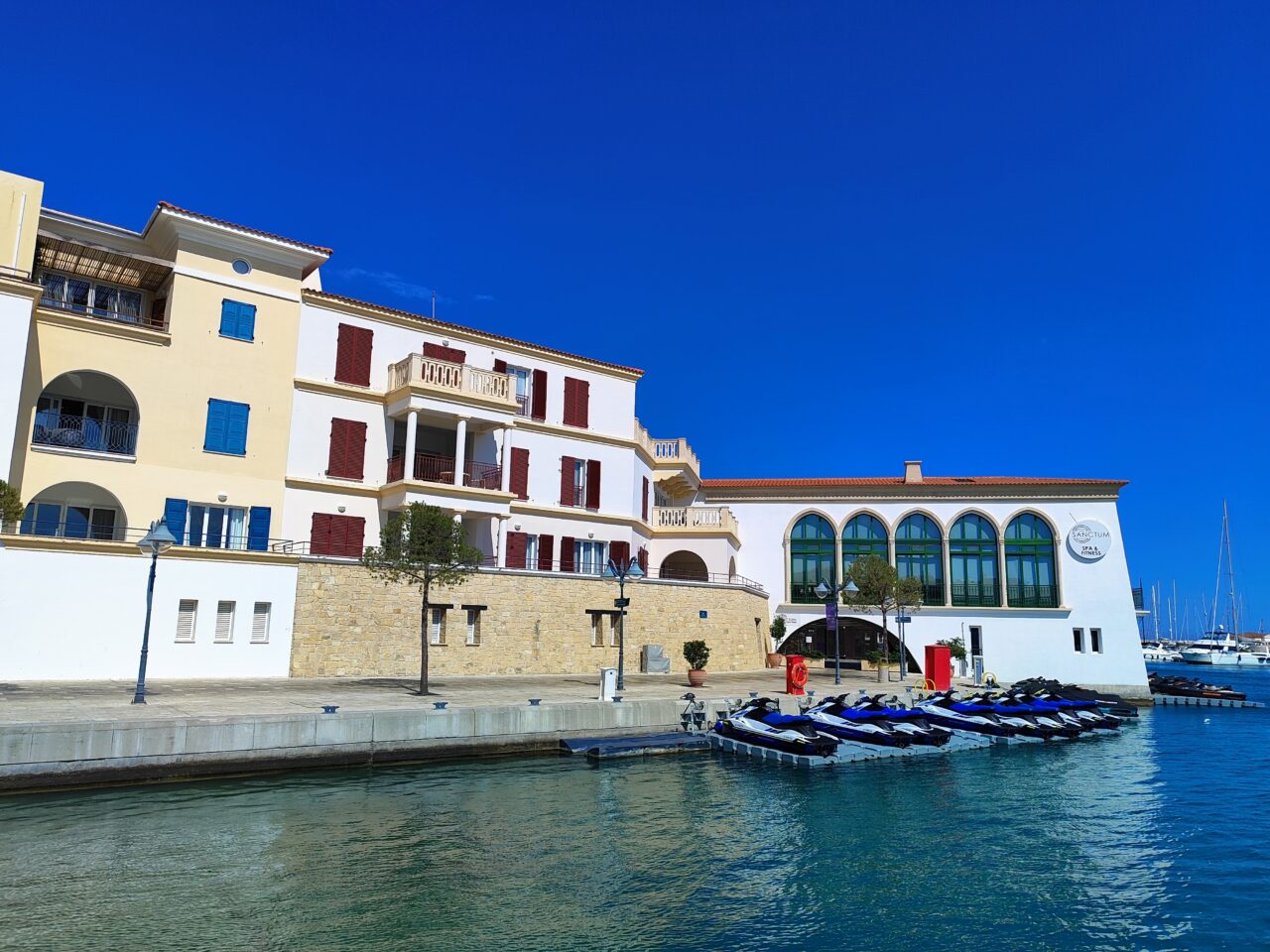
Cyprus offers a high standard of living thanks to its well-developed infrastructure and a wide range of services. The island boasts a modern healthcare system, including both public and private clinics, which provide quality medical care. Most healthcare professionals speak English, making services accessible to foreign residents.
The quality of life in Cyprus is also defined by access to various amenities: modern shopping centers, restaurants, cafes, cinemas, and sports complexes meet the needs of both locals and expats. Life on the island is combined with a relaxed Mediterranean lifestyle, which contributes to well-being and stress reduction.
Housing and basic goods prices in Cyprus are comparable to the European average, making the cost of living similar to that in other European countries. However, the cost of living can vary depending on the region: in major cities like Limassol and Nicosia, housing and service prices are higher than in other areas.
Tax Advantages
The tax system in Cyprus is considered one of the most favorable in Europe, offering significant tax benefits and incentives to residents and businesses. You can learn more in our article on taxes in Cyprus.
Low Personal Income Tax
Cyprus provides its residents with one of the lowest personal income tax rates in the European Union. The taxation is progressive, with rates ranging from 0% for incomes up to €19,500 per year, to 35% for incomes over €60,000. This makes Cyprus attractive to highly paid professionals, entrepreneurs, and retirees who can significantly reduce their tax liabilities compared to other countries.
Tax Benefits for Foreigners
Cyprus also offers benefits for new residents: the “non-domicile” program allows exemption from tax on income earned outside of Cyprus for the first 17 years of residence on the island. This makes Cyprus particularly appealing to wealthy individuals and entrepreneurs.
Attractive Corporate Tax Rate
Cyprus has one of the lowest corporate tax rates in Europe—only 12.5%. This makes the island an attractive location for business, especially for international companies looking to minimize their tax liabilities. Additionally, Cyprus has an extensive network of double taxation treaties with more than 60 countries, which helps legally reduce the tax burden on international business. There is also a special IP-Box regime with a tax rate of 2.5%.
No Capital Gains Tax on Certain Types of Assets
In Cyprus, there is no capital gains tax on most assets, except for real estate located within the territory of Cyprus. This means that any investments in stocks, bonds, or other financial instruments are not subject to capital gains tax, making Cyprus a beneficial location for investors.
No Inheritance Tax
Cyprus is also attractive because there is no inheritance or gift tax, which can be a significant advantage for those planning to transfer assets to their descendants.
Thus, Cyprus’s tax system is one of the key factors attracting foreigners and entrepreneurs to the island. Favorable tax rates, various benefits for residents and companies, as well as the absence of inheritance tax, create favorable conditions for long-term financial planning and business operations on the island.
Cultural Diversity and International Community
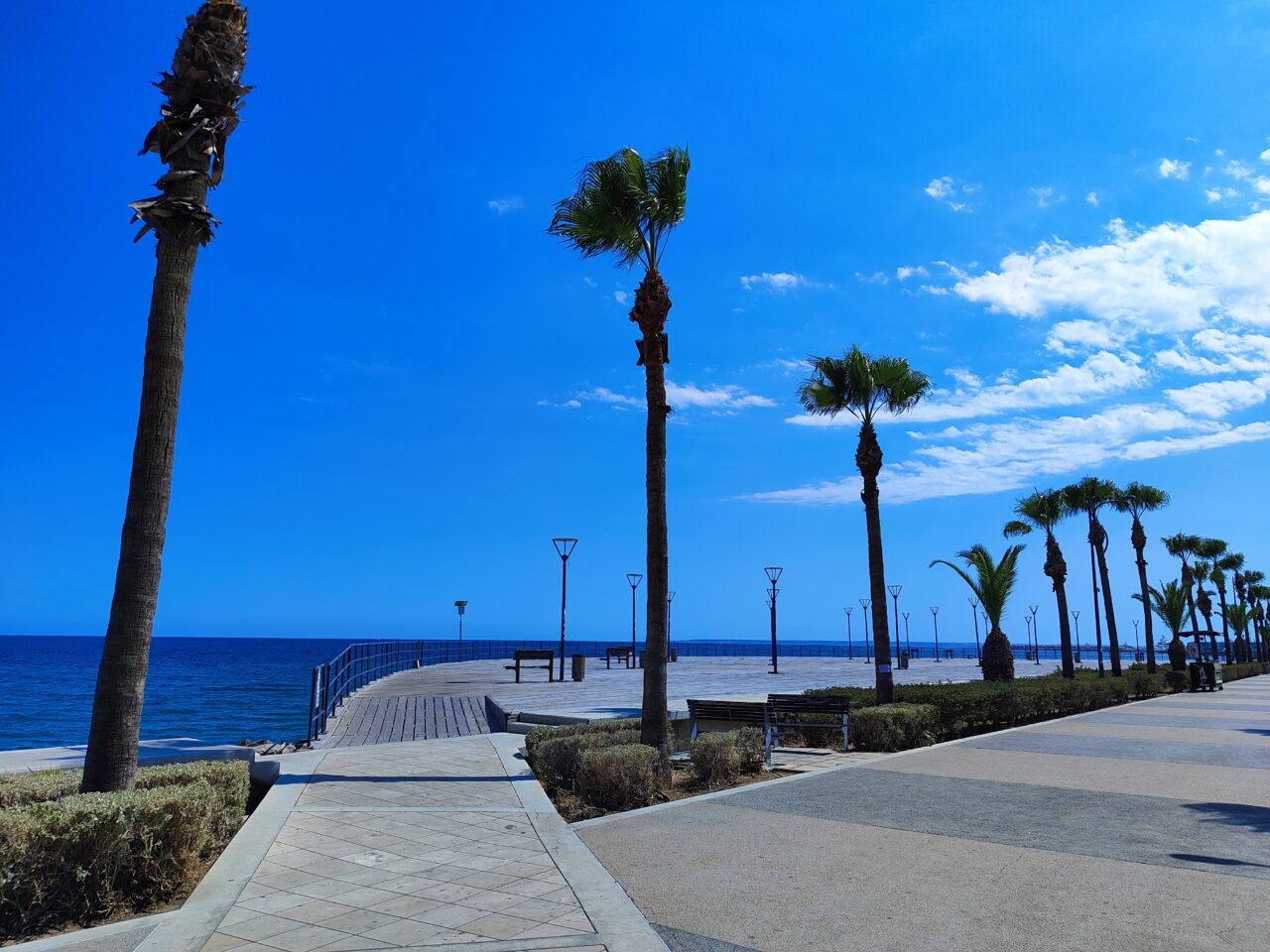
Located at the crossroads of Europe, Asia, and Africa, Cyprus has long been a meeting place for various cultures and civilizations. Today, this multicultural atmosphere attracts people from all over the world, creating a unique international community and rich cultural diversity.
Multinationalism and Tolerance
Cyprus is home to a large number of expats from various countries, including the United Kingdom, Russia, Germany, Scandinavia, and others. This makes the island multicultural, with numerous foreign communities actively participating in local society. The local population, in turn, is known for its hospitality and tolerance toward foreigners, which facilitates integration and adaptation to the new environment.
Cypriots are generally open and friendly towards foreigners, creating a welcoming atmosphere for living. English is widely spoken in daily life, with many locals fluent in the language, and it is also used in business and government documentation. This greatly simplifies communication and integration for foreign residents.
Diversity of Cultural Events and Activities
Cyprus regularly hosts various cultural events reflecting the island’s rich heritage and diversity. Theatrical performances, music concerts, exhibitions, festivals of traditional Cypriot culture, and international events attract both locals and tourists. For example, the annual Limassol Wine Festival, dedicated to local wines and traditions, draws visitors from across the island and beyond.

Additionally, the island has numerous cultural centers and clubs representing the interests of various national communities. This allows expats to maintain a connection with their native culture, participate in celebrations and events, and establish and develop new connections with other members of the international community.
Opportunities for International Networking and Business
The multinational community in Cyprus creates favorable conditions for international networking and business connections. It is easy to find like-minded individuals and business partners from various countries, which promotes the development of international entrepreneurship. Cyprus has become home to many international companies and startups that use the island as a base for entering European and Asian markets.
Cyprus also offers international schools and universities that provide education in English and meet international standards. This makes the island attractive to families with children who seek quality education in a multicultural environment.
Multinationalism, tolerance, a wealth of cultural events, and the opportunity to connect with people from around the world create a unique and favorable environment for living and working, making Cyprus an attractive place for residents from different corners of the globe.
Quality of Education and Healthcare
These two sectors are at a high level, providing comfortable living conditions for both locals and foreign residents.
Education
The education system in Cyprus includes both public and private institutions that offer high standards of education. Public schools in Cyprus are free and accessible to all residents; however, instruction is in Greek. For expats and foreign families, private and international schools might be more preferable, where education is conducted in English and follows international curricula, such as the British or American education systems.
Cyprus is home to several international schools, including The English School, American Academy, and Pascal English School, which provide high-quality education and prepare students for admission to universities around the world. These schools offer a wide range of academic programs, extracurricular activities, and sports clubs, contributing to the well-rounded development of children.
Higher education in Cyprus is also of a high standard. The island hosts several universities, both public and private, including the University of Cyprus, Cyprus University of Technology, and European University Cyprus. These universities offer programs in English, making them accessible to international students.
Healthcare
The healthcare system in Cyprus includes both public and private medical institutions, offering a wide range of services and highly qualified medical personnel. The public healthcare system is available to all residents of Cyprus and is partially funded through social insurance contributions. Public hospitals and clinics provide essential medical services, including emergency care, hospitalization, and treatment of chronic diseases.
Many foreign residents prefer private medical institutions, which offer a higher level of comfort, shorter waiting times, and a personalized approach to patients. Private clinics in Cyprus are well-equipped with modern facilities and provide a wide range of medical services, from general therapy to specialized surgical procedures.
For those who prefer private healthcare, various insurance plans are available, covering the costs of treatment in private clinics and hospitals.
Additionally, Cyprus has specialized medical centers and clinics offering highly qualified services in fields such as dentistry, cardiology, oncology, and reproductive medicine. This makes Cyprus an attractive destination for medical tourism, as well as for those seeking quality healthcare for themselves and their families.
Ease of Doing Business
Cyprus is deservedly considered one of the most attractive places for doing business in Europe. Convenient conditions for company registration and management, as well as a favorable business environment, make the island appealing to entrepreneurs and investors from around the world.
Simplified Business Registration Process
Cyprus has one of the simplest and fastest business registration procedures. The process of establishing a company takes only a few days, and most administrative procedures can be completed online. Minimal requirements for share capital and low administrative barriers make it easy to start a business. This simplicity is especially important for small and medium-sized enterprises that want to quickly enter the market.
Favorable Legal Environment
Cyprus’s legal system is based on English law, making it understandable and predictable for international entrepreneurs. Cyprus has a developed judiciary and effective protection of property rights, which is an important factor for doing business. The island has also signed a number of international agreements that provide investment protection and simplify cross-border transactions.
Support for Startups and Entrepreneurship
Cyprus actively develops infrastructure to support startups and innovative enterprises. The island is home to numerous business incubators and accelerators that help young companies grow and enter international markets. Government and private entrepreneurship support programs include funding, mentorship, and access to networks of contacts. Cyprus also offers various grants and tax incentives for innovative companies and startups.
Access to International Markets
Thanks to its strategic location at the crossroads of Europe, Asia, and Africa, Cyprus serves as a convenient platform for accessing international markets. The island is a member of the European Union, which provides free access to EU markets and facilitates foreign trade activities. Additionally, Cyprus has favorable trade agreements with other countries, simplifying the export and import of goods and services.
Banking System and Access to Finance
Cyprus has a developed banking system that offers a wide range of financial services for businesses. Banks in Cyprus provide convenient conditions for opening accounts, obtaining loans, and managing finances. Additionally, international financial institutions operate on the island, making it easier to access global financial markets.
Cons of Living in Cyprus
Summer Heat
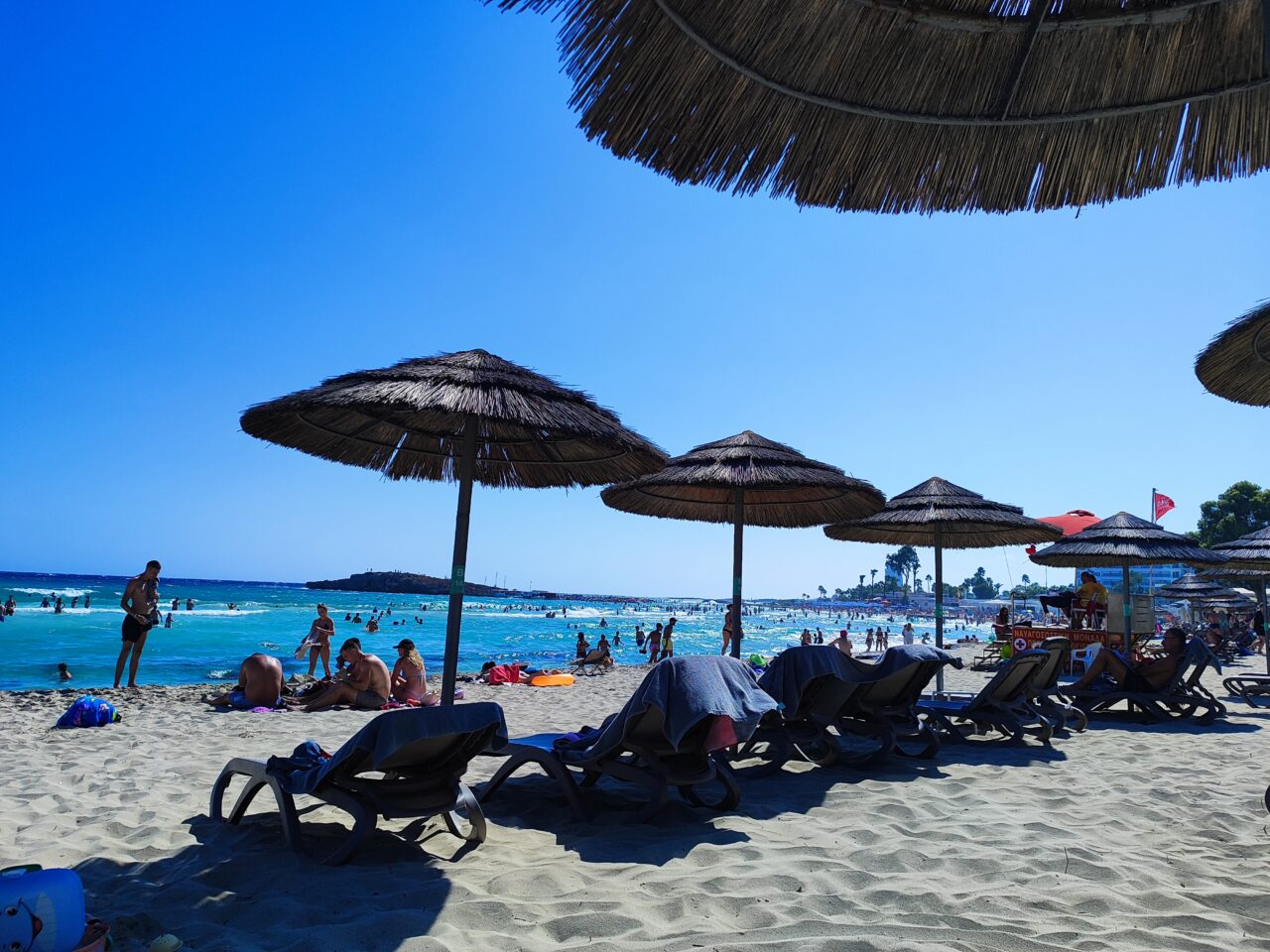
One of the main drawbacks of living in Cyprus is the extreme heat during the summer months, which can be quite uncomfortable, especially for those not accustomed to such climatic conditions.
High Temperatures
The summer months in Cyprus, particularly July and August, are characterized by very high temperatures, which can reach 35-40°C in the shade, and sometimes even higher. In direct sunlight, the temperature can feel even more intense, making it uncomfortable and even dangerous to be outdoors during the day. The high temperature is accompanied by low humidity, which exacerbates the feeling of heat and can lead to dehydration and heatstroke, especially in the elderly and children.
Limited Opportunities for Activity
Due to the intense heat, many outdoor activities become impossible or highly unpleasant during the daytime. This affects both work and leisure activities. For example, exercising, walking, gardening, or construction work can be extremely difficult due to the extreme temperatures. Many people prefer to spend most of the day indoors with air conditioning, which limits their opportunities for an active lifestyle.
Impact on Health
Extreme heat can negatively affect health, especially for those with chronic conditions, cardiovascular issues, or respiratory disorders. The risk of heatstroke, sunburns, and other heat-related problems increases. Elderly people, young children, and pregnant women are particularly vulnerable to the heat and are advised to take extra precautions during the summer months.
Infrastructure Challenges
High temperatures can also create problems with infrastructure. For example, due to overloads on the power grid during peak heat, power outages can occur, especially if many people are using air conditioners simultaneously. Additionally, the heat can affect road quality and the operation of some forms of transportation.
Coping with the Heat
To mitigate the effects of heat, air conditioning is widely used in Cyprus, installed in most homes, offices, and public places. It is also important to take precautions: wear light, breathable clothing, drink plenty of water, avoid sun exposure during peak heat, and use sunscreen.
Overall, while the summer heat is a significant drawback of living in Cyprus, it is offset by the availability of appropriate measures and opportunities for adaptation. However, this factor should be considered when deciding to move to the island, especially if you or your loved ones are sensitive to high temperatures.
High Cost of Living
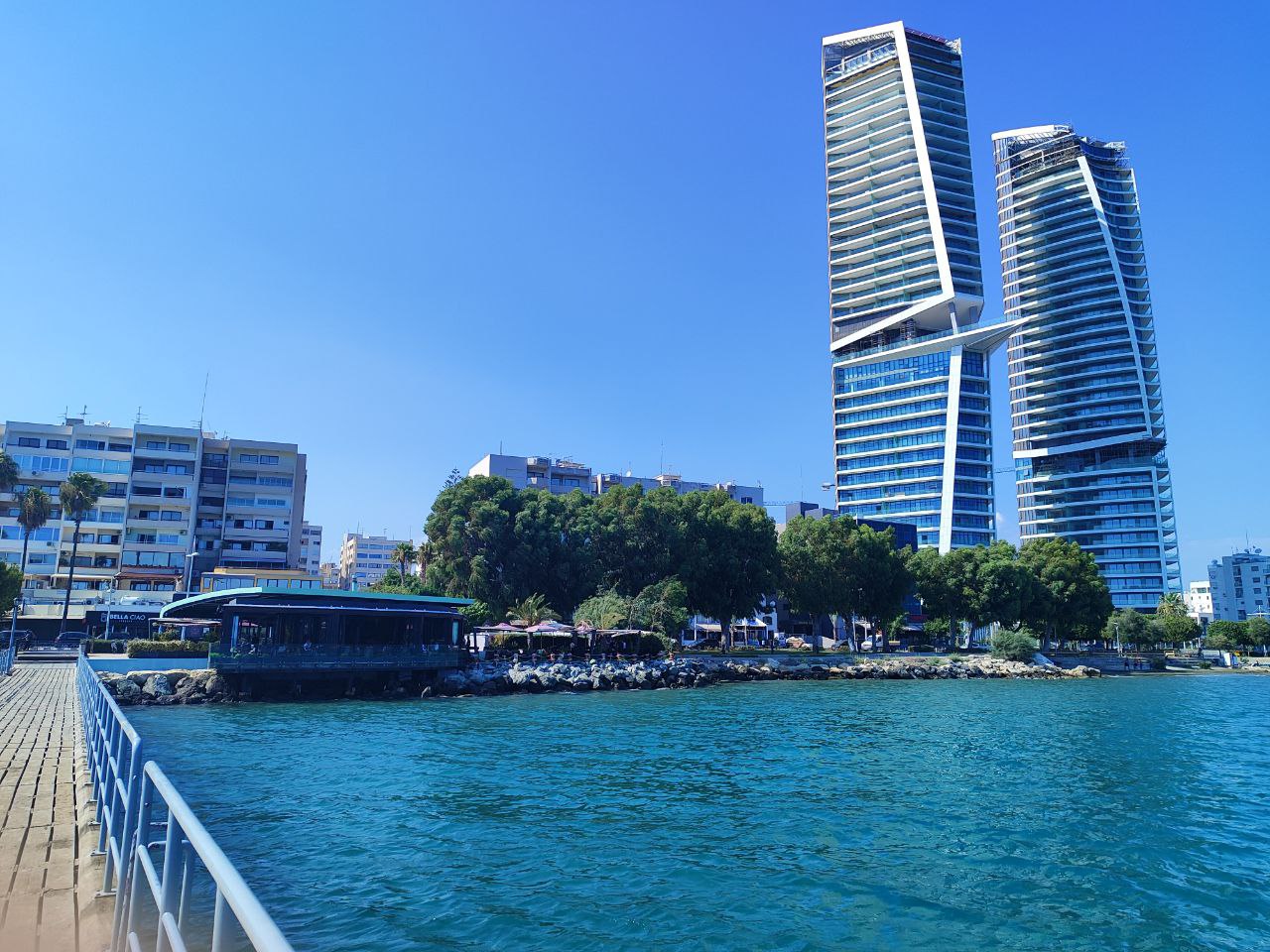
Another significant drawback of living in Cyprus is the relatively high cost of living, which varies depending on the region and individual needs.
Housing Prices
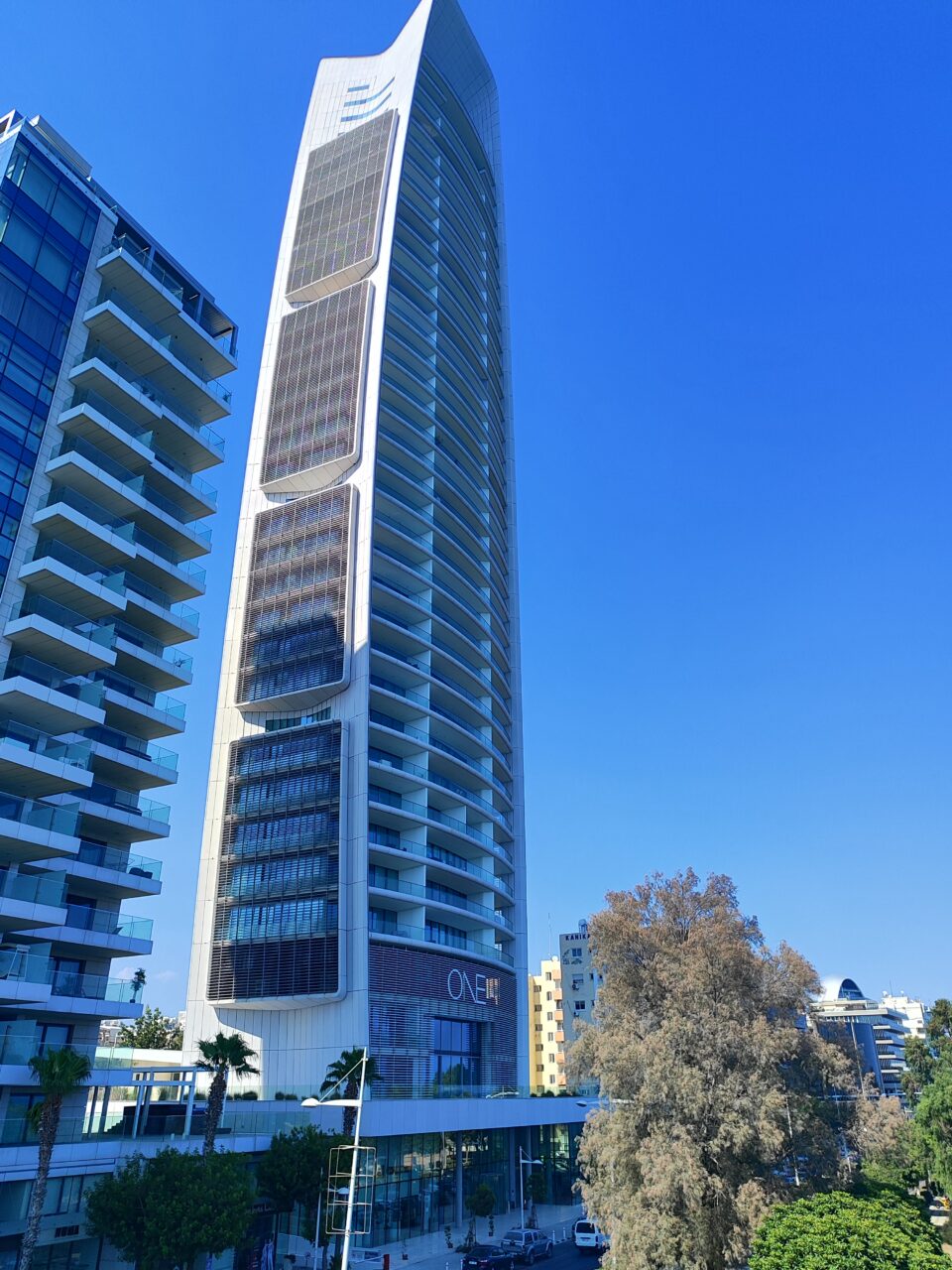
Housing costs in Cyprus have significantly increased in recent years, particularly in popular tourist and business hubs such as Limassol, Paphos, and Nicosia. Rental rates in these cities can be quite high, especially for modern apartments and houses with good renovations and amenities. Purchasing property also requires substantial investment, particularly in prestigious areas and along the coast. This can become a serious financial burden for those planning to move to the island or buy property.
Imported Goods

Many goods in Cyprus, especially imported ones, are more expensive compared to other EU countries. This is because the island heavily relies on the import of food, household appliances, clothing, and other goods. Prices for such items can be higher due to transportation costs and customs duties. This is particularly noticeable with food products, imported alcoholic beverages, and electronics. Those accustomed to the wide selection and affordable prices in major European cities may notice a difference in the cost of living in Cyprus.

High Prices for Services
Services in Cyprus, including medical care, repairs, hairdressing, and beauty services, can also be more expensive than in some other countries. This is due to the limited number of specialists and competition in certain sectors. The cost of medical services in private clinics, for example, can be significant, especially if you do not have private health insurance.
Price Increases During Tourist Season
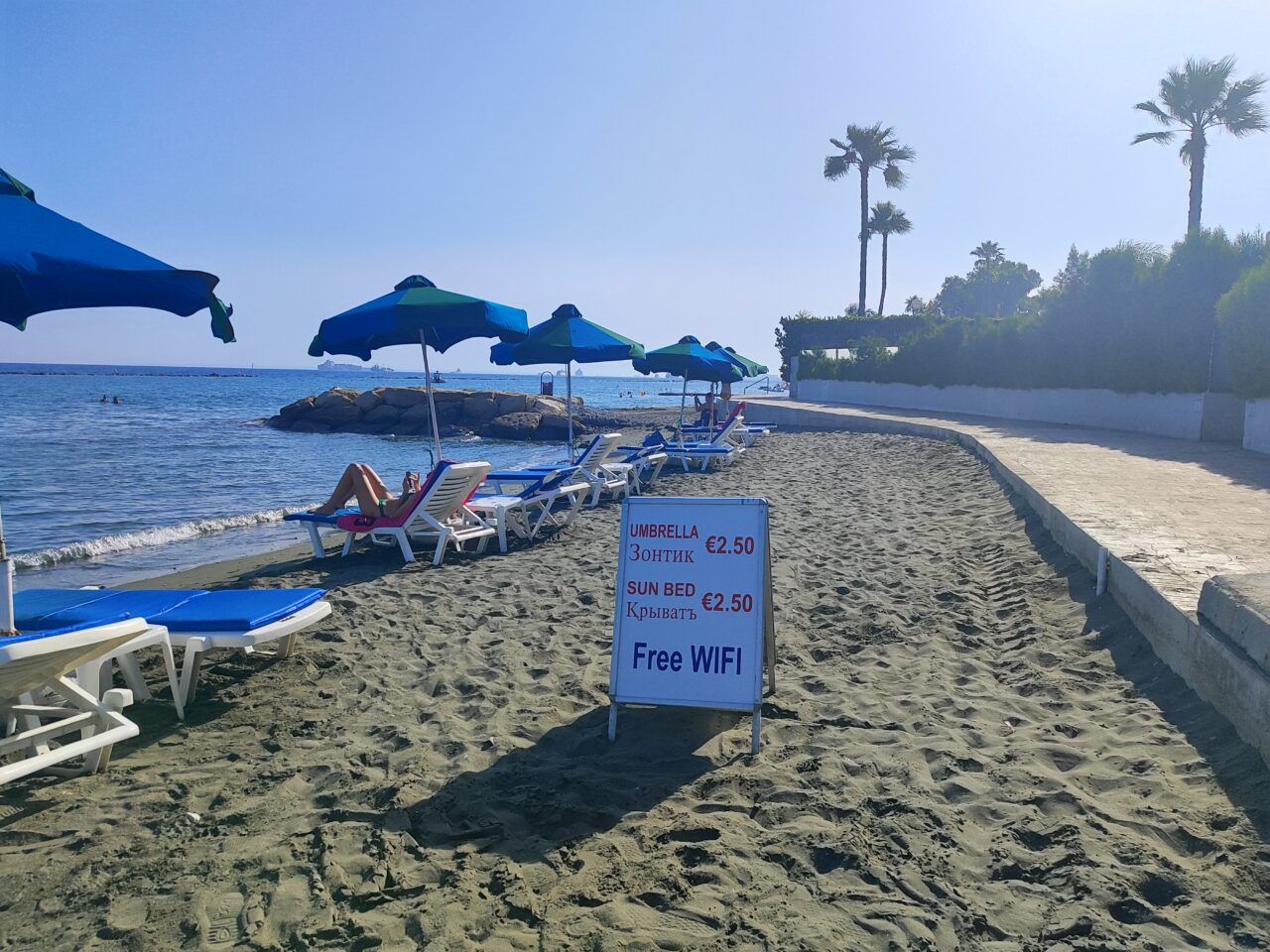
In popular tourist areas of Cyprus, prices can rise significantly during the summer season. This affects not only housing rentals but also the cost of food and services. As a result, locals and residents face seasonal increases in the cost of living, especially in tourist areas.
Overall, the high cost of living in Cyprus is an important factor to consider when planning a move to the island. For many, this aspect may become a serious limitation, especially if income levels do not match the cost of living on the island. However, careful planning and understanding of local conditions can help mitigate this disadvantage.
Transport Issues
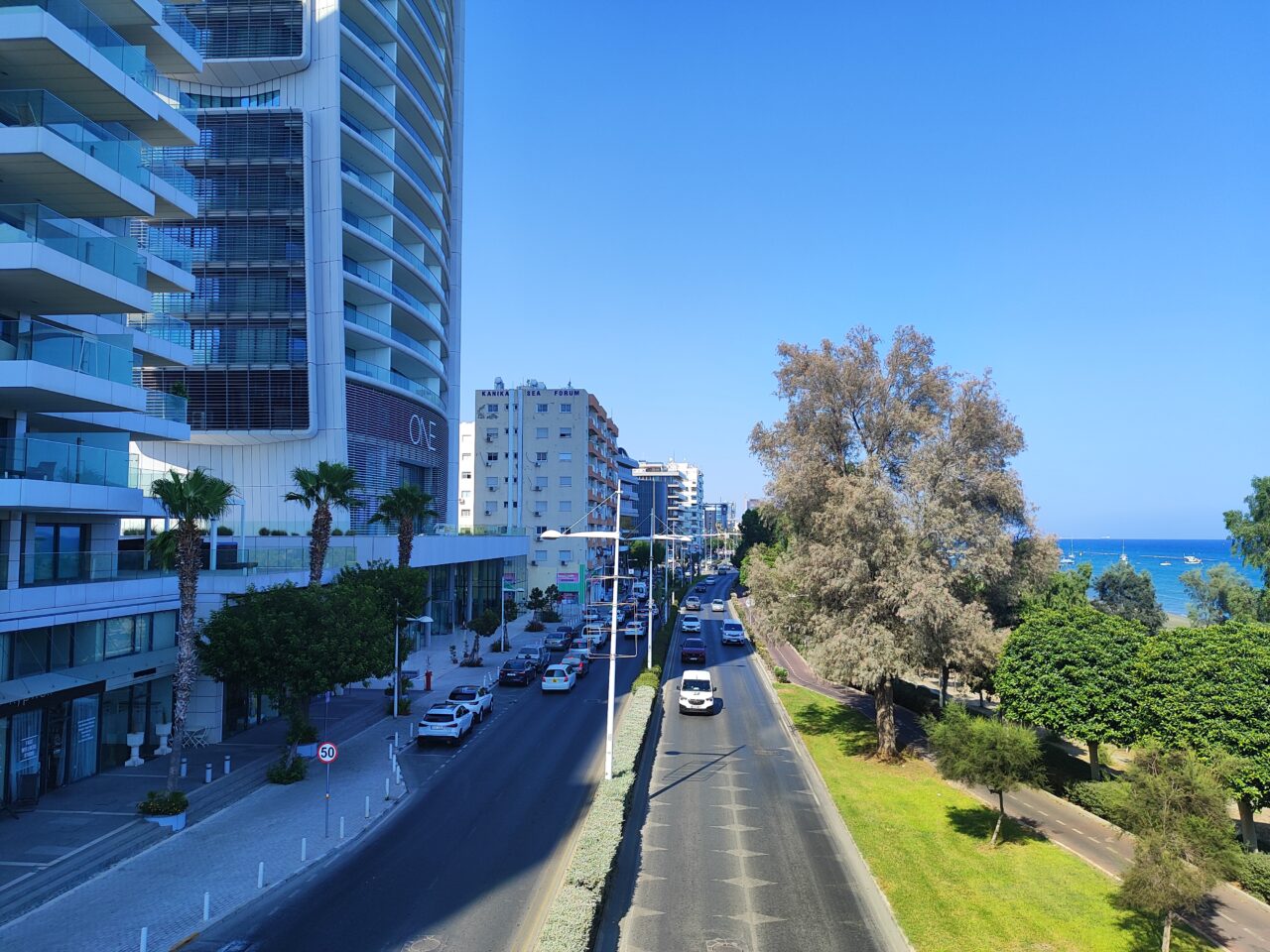
Limited Public Transportation
Public transportation in Cyprus is underdeveloped compared to other European countries. The primary modes of public transport are buses, which operate both intercity and urban routes. However, bus service is often not regular enough and limited in hours, especially in the evenings and on weekends. In some areas, particularly in rural regions, access to public transportation can be minimal or nonexistent.
For those accustomed to a well-developed public transport system, as in major European cities, this situation can be inconvenient and require significant adaptation. The lack of metro, trams, or rail services also limits transportation options, especially for long distances.
Dependence on Private Cars

Due to the underdevelopment of public transportation, most residents of Cyprus rely heavily on private cars for getting around the island. This leads to several issues. First, owning a car involves additional expenses for fuel, insurance, maintenance, and parking, which can be substantial. Second, in major cities like Limassol or Nicosia, traffic congestion is common, especially during peak hours, which can significantly increase travel time.
Parking spaces in cities can also be scarce, especially in central areas, creating additional inconveniences. Many residents face the challenge of finding a free parking spot, which can become a source of stress and time loss.
Road Infrastructure and Safety
Although Cyprus has relatively good road infrastructure, the quality of roads can vary depending on the region. In rural areas, roads may be narrow and poorly lit, increasing the risk of traffic accidents. Additionally, Cyprus has left-hand driving, which may require some adjustment for drivers from countries with right-hand traffic.
Transport Solutions
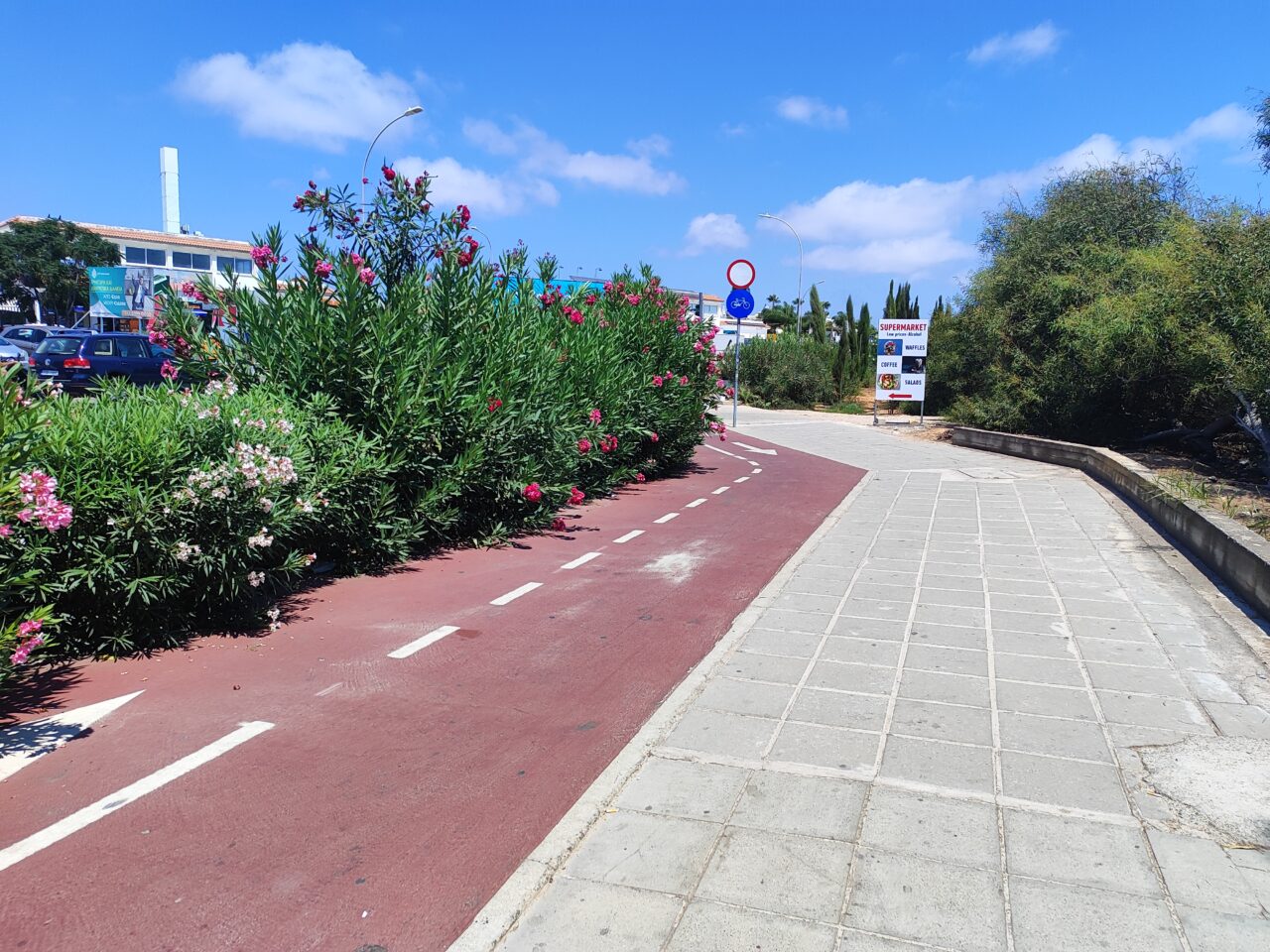
To address transportation issues, some residents opt for alternative modes of transport, such as bicycles or electric scooters, especially in urban areas. However, the limited number of bike lanes and infrastructure for these modes of transport can be a barrier to their widespread use.
In some cases, carpooling or using car-sharing services can be arranged, which helps reduce the load on the road network and lower the costs of car ownership.
Limited Career Opportunities
Another significant drawback of living in Cyprus is the limited career growth and employment opportunities in certain fields. This can be a serious obstacle for professionals seeking to advance their careers or find well-paying jobs.
Limited Job Market
The job market in Cyprus is relatively small, which is explained by the size of the country and the structure of its economy. The main sectors offering employment are tourism, finance, real estate, and services. However, these industries often face challenges in finding highly skilled jobs, especially for foreign specialists who do not speak Greek. Job opportunities in high-tech industries, science and research, and manufacturing are limited in Cyprus, making it difficult to find work in these fields.
Competition in the Job Market
Due to the small size of the job market and the limited number of vacancies, competition for jobs can be quite high, especially in popular fields such as finance and legal services. This creates additional challenges for foreign specialists, who may face competition from local candidates already familiar with the language and culture.
Moreover, many job vacancies require knowledge of the Greek language, which can be a significant barrier for those who do not speak it at a sufficient level. Although English is widely used in business, especially in international companies, knowledge of Greek is often necessary for interacting with local clients and government agencies.
Dependence on Seasonality
In some sectors, such as tourism and services, the job market is seasonal. The summer tourist season brings many temporary jobs, but the number of vacancies significantly decreases in the off-season. This creates instability for workers in these industries and can make it difficult to find permanent employment.
Opportunities for Entrepreneurship
Despite the limited opportunities in the job market, Cyprus offers favorable conditions for entrepreneurs and small business owners. Starting your own business can be a good alternative for those who cannot find suitable vacancies. However, entrepreneurship requires a certain level of capital and knowledge, as well as thorough research of the local market.
Thus, the limited career opportunities in Cyprus are an important factor to consider when planning a move to the island. For those seeking active career growth or employment in specialized fields, it may be challenging to find suitable options in this job market. However, for those willing to adapt and consider alternative paths such as entrepreneurship, Cyprus can offer interesting prospects.
Bureaucracy Issues
Bureaucratic challenges in Cyprus are one of the significant drawbacks faced by both locals and foreign residents. Procedures related to document processing, interaction with government institutions, and resolving administrative matters can be quite difficult and time-consuming.
Slow Service in Government Institutions
In Cyprus, the process of obtaining various permits, licenses, and other official documents can be quite slow. Often, multiple visits to government offices are required to complete even simple procedures. Waiting times can be considerable, and this applies to both state and municipal services. For example, registering residency, processing tax documents, or obtaining a driver’s license may take longer than what is customary in other European Union countries.
The slow service may be due to insufficient automation of processes and a shortage of staff in some institutions. As a result, people often have to visit offices in person, wait in lines, and resubmit documents due to minor errors or omissions.
Difficulties with Document Processing for Residents
For foreign citizens, the process of obtaining documents in Cyprus can be even more complex and may require additional effort. For instance, obtaining a residence permit (Yellow Slip) or extending a visa may involve submitting a large number of documents, including employment certificates, medical certificates, and other proofs. Additionally, requirements may change depending on the situation, complicating planning.
Foreigners often encounter situations where rules and procedures seem ambiguous or are interpreted differently by various government employees. This can cause additional confusion and require a lot of time to clarify all the details and requirements.
Lack of Centralized Online Services
Although Cyprus is gradually implementing online services for submitting applications and paying for government services, many processes still require in-person attendance or the submission of paper documents. This creates additional challenges for people accustomed to the convenience of digital services in other countries.
It is also worth noting that the available online services do not always work reliably, and their use may sometimes be limited due to technical issues or system shortcomings.
Tips for Overcoming Bureaucratic Challenges
To mitigate bureaucratic issues, it is recommended to prepare all necessary documents in advance and, if possible, involve local consultants or lawyers who are well-versed in local rules and procedures. They can help avoid common mistakes and speed up the process of obtaining the necessary permits and documents.
It is also important to be patient and ready for the fact that tasks related to bureaucracy may take longer than expected. Planning with potential delays in mind can help avoid stressful situations and better organize your time.
Integration Issues
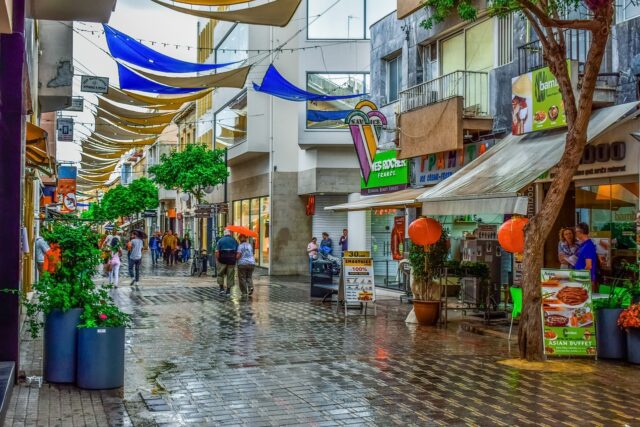
Integration into the local society in Cyprus can be a challenging task for many foreign residents. Despite the hospitality and friendliness of the local people, there are certain cultural and social barriers that may complicate the adaptation process and be a significant downside for those considering relocating to the island.
Difficulties in Adapting to Local Culture
Cyprus, with its unique culture and traditions, may seem to foreigners like a relatively closed and conservative society. Many aspects of Cypriot life, such as family values, social norms, and religious customs, may differ from what foreigners are accustomed to. Understanding and accepting these cultural differences may require time and effort.
Additionally, Cypriot society, especially in rural areas, can be somewhat traditional and less receptive to change, which may cause challenges in communication and integration. Foreign residents might feel isolated or face difficulties in forming deep connections with locals if they do not share the commonly accepted cultural values.
Language Barrier
Although English is widely used in Cyprus, particularly in business and tourist areas, knowledge of the Greek language is an important aspect of successful integration into the local community. In daily life, especially outside the major cities, many locals prefer to speak Greek, which can create difficulties for those who do not know the language.
Without knowledge of Greek, foreigners may struggle with understanding local news, communicating in government offices, or participating in community life. It can also make it harder for children to integrate into local schools and communicate with Cypriot peers.
Limited Opportunities for Social Integration
Social integration can be hindered by limited opportunities to engage in local communities. While there are many clubs and organizations for expats in Cyprus, they often consist of small, closed groups, and their activities may focus on socializing with compatriots rather than integrating with the local population. This can lead to the creation of an “expat bubble,” where foreigners primarily interact with each other, missing the chance to fully immerse themselves in the local culture.
For successful integration, it is recommended that foreigners actively participate in local events, learn the language, and strive to build connections with Cypriots. However, this requires time, persistence, and a willingness to step out of one’s comfort zone.
Addressing Integration Challenges
To ease the challenges of integration, many foreigners seek assistance from local consultants or participate in language courses and cultural programs that help them better understand and embrace local customs and traditions. It is also helpful to study Cyprus’s history and culture before moving, to prepare in advance for potential difficulties.
Overall, with the right approach, active participation in local life, and a willingness to learn and adapt, these challenges can be overcome, allowing you to successfully integrate and enjoy life on this unique island.
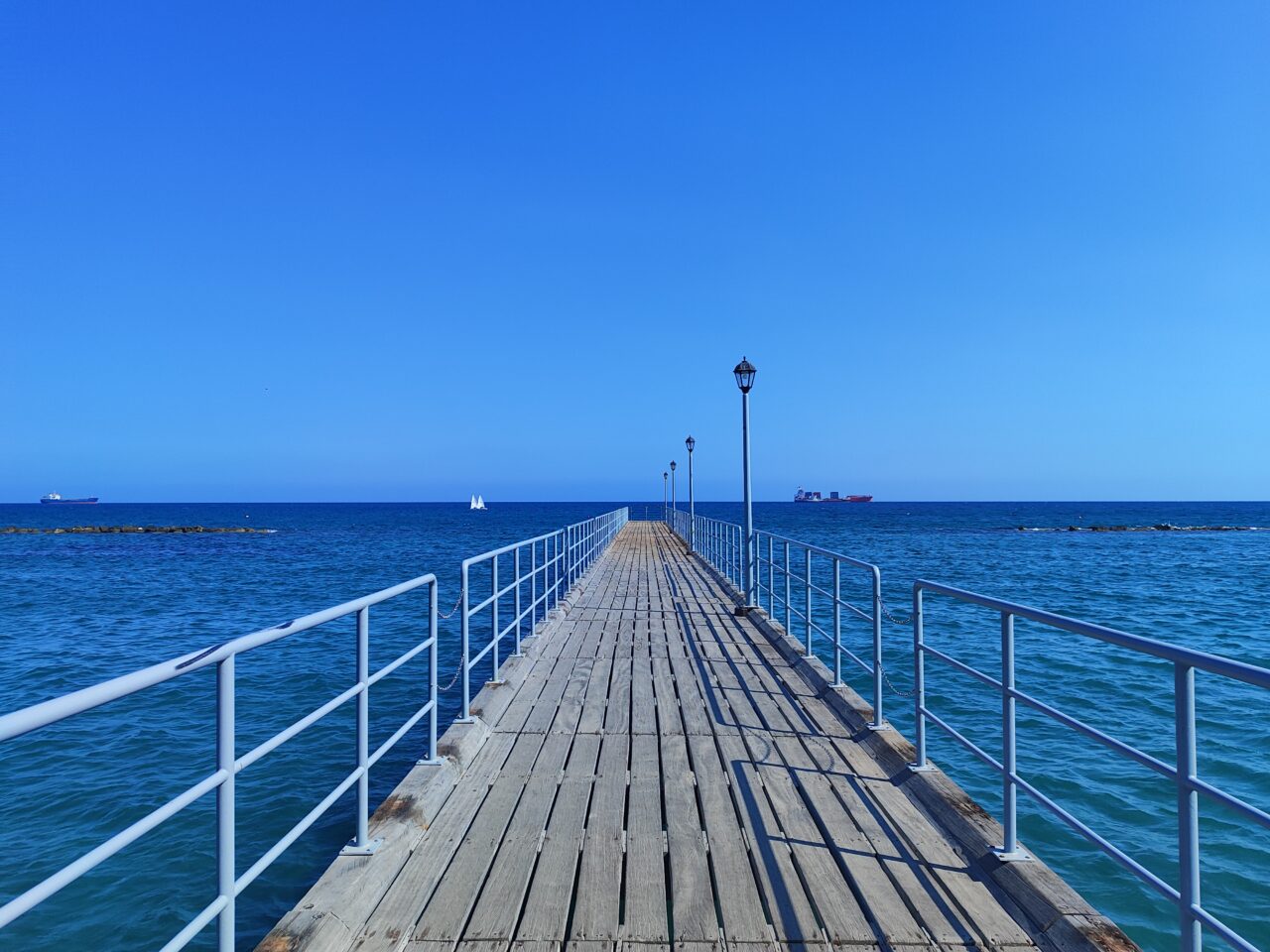
Life in Cyprus certainly has many attractive aspects: from its mild climate and favorable environment to its high level of safety and quality business conditions. The island offers rich cultural diversity, access to an international community, and good opportunities for education and healthcare. These benefits make Cyprus a desirable destination for relocation, whether for families or entrepreneurs seeking new opportunities.
However, alongside these advantages, there are certain drawbacks to consider. The high cost of living, transportation and bureaucracy issues, and limited career and integration opportunities can pose significant challenges to a comfortable life on the island. The hot climate can also be unfamiliar and create discomfort, particularly during the summer months.
Deciding to move to Cyprus requires carefully weighing all the pros and cons. The island can be an ideal place for those who value tranquility, safety, and sunny weather, but it is important to be prepared for the possible difficulties related to adaptation and integration. For a successful life in Cyprus, it is essential to study the local characteristics in advance, plan your budget, and be ready for cultural differences. With the right approach, Cyprus can become a comfortable and pleasant place to live, work, and relax.

